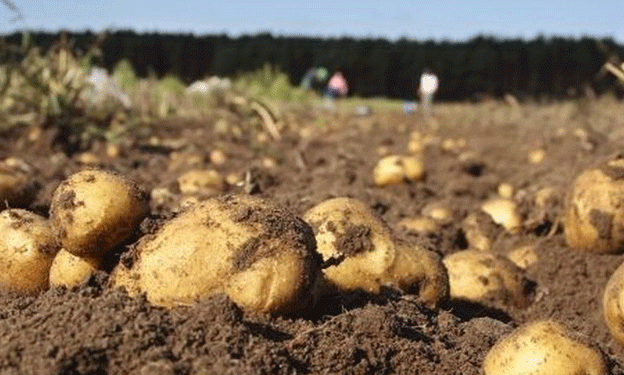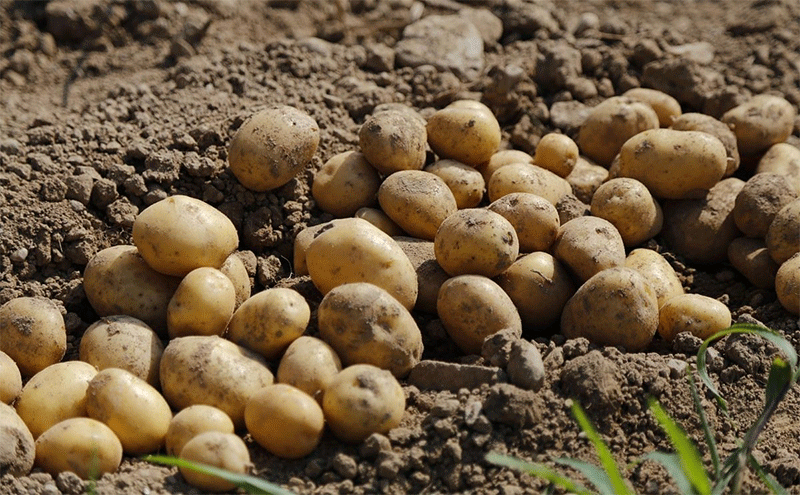Sambhal district in Uttar Pradesh is known for its substantial contribution to potato production, with an increasing cultivation area every year. However, despite this growth, the district lacks a proper market and food processing plant dedicated to potatoes. This gap in infrastructure has led to several challenges for farmers, who are often forced to sell their produce at low prices, unable to get the right value for their hard work.
Lack of a Proper Market: A Major Hindrance for Farmers
The absence of a designated potato market has pushed farmers to sell their produce along the roadsides, particularly near the Chowdhary Sarai area in Sambhal. As farmers bring their potatoes in large trucks, they face challenges such as limited buyers, poor pricing, and interference from middlemen. These middlemen purchase the potatoes at low prices and profit by reselling them in distant markets. The lack of direct access to a regulated marketplace results in farmers not receiving the fair value for their crops.
Veer Singh, a local farmer, states, “Without a proper potato market, we are forced to sell our potatoes to traders on the streets, where prices are dictated by them. This puts us at a disadvantage.”
The Potential of a Food Processing Plant
A significant opportunity for farmers would be the establishment of a food processing plant in the region. With a processing plant, farmers would not only benefit from fairer prices but could also diversify their income through value-added potato products. A food processing facility would stabilize potato prices, reducing the risk of price fluctuations that farmers currently face due to supply and demand imbalances.
Rohit Kumar, a local farmer, believes that the creation of such infrastructure would lead to economic prosperity. “If a food processing plant and market are set up in Sambhal, farmers will receive a fair price for their crops. This will greatly improve their economic condition,” he explains.
Impact of the Lack of Infrastructure on Farmers
The absence of both a dedicated market and a food processing plant means farmers face continuous challenges in getting fair prices for their crops. Bhure Singh, another farmer from the area, shares, “In winter, we bring potatoes in tractor-trailers to sell, but we have to deal with the cold, limited buyers, and uncertain prices. It’s difficult to make a profit this way.”
The district’s expanding potato production has not translated into improved farmer incomes due to these logistical shortcomings. Bharat Singh, a potato grower, insists, “We need both a market and a food processing plant in our district to ensure fair prices and better profitability.”
Opportunities for Investment
The government has established the MSME (Micro, Small, and Medium Enterprises) platform, where entrepreneurs can apply for subsidies to set up food processing plants. The establishment of such a facility in Sambhal could create jobs, reduce post-harvest losses, and allow farmers to sell their produce at stable prices, not dictated by middlemen. Cold storage facilities, like the one in Chandausi for potato flakes, show that such ventures are not only feasible but could also drive significant economic growth for the region.
The potato farmers of Sambhal face numerous obstacles, from low prices due to the lack of a market to the absence of food processing infrastructure. Establishing a dedicated potato market and food processing plant would empower local farmers by giving them better control over their produce and its pricing. It would also create new revenue streams through processed potato products, benefiting both farmers and the broader economy of the region. Therefore, it is crucial for the government and stakeholders to take swift action and create these essential facilities to improve the livelihoods of farmers in Sambhal.







